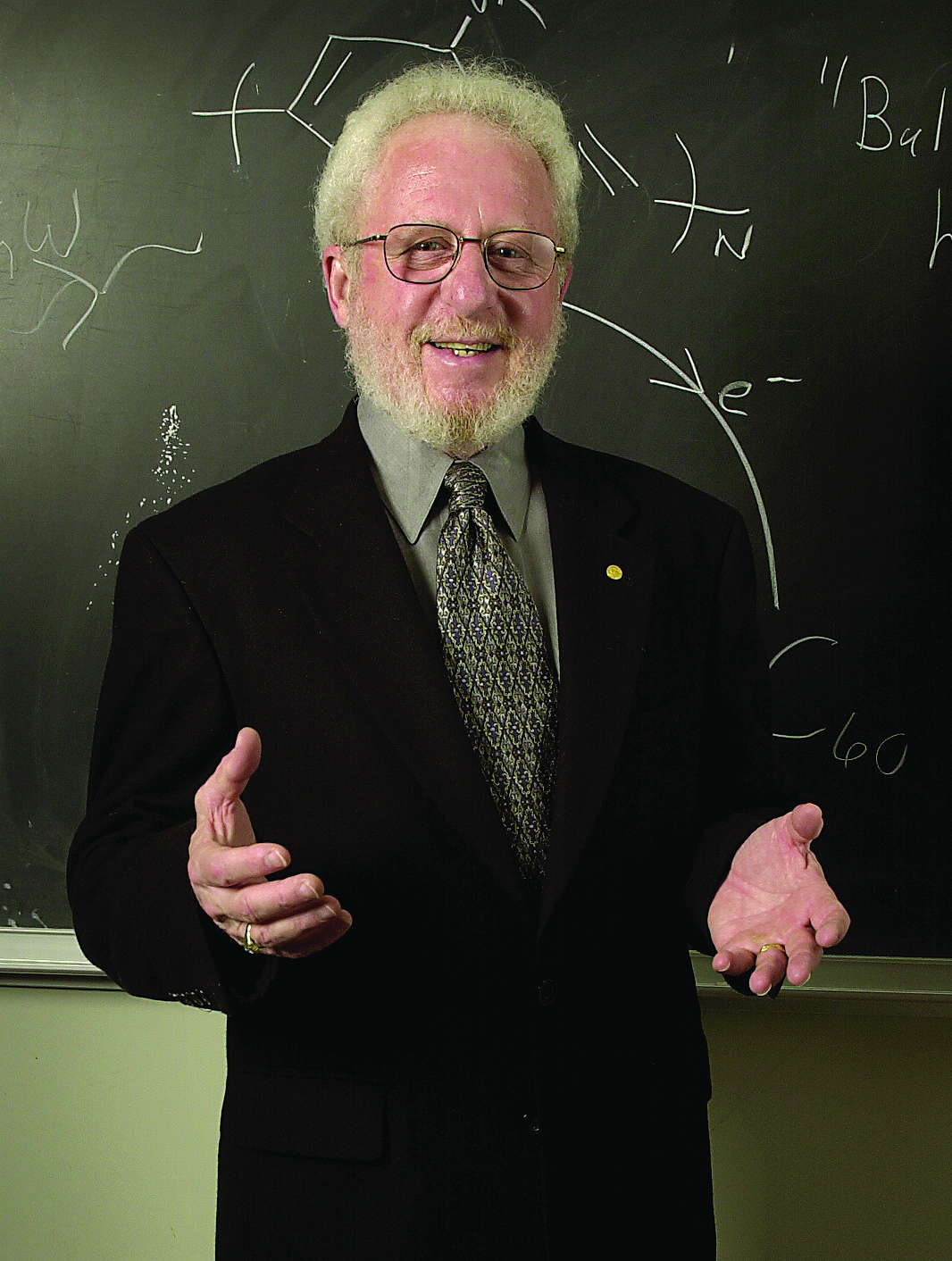
Lecturer: Alan J. Heeger, professor of physics, University of California, Santa Barbara
Date: Thursday, Jan. 29, 2009
Time: 7:30 p.m.
Place: Aline Wilmot Skaggs Biology Building Auditorium, University of Utah
FREE AND OPEN TO THE PUBLIC
Nobel Laureate Alan J. Heeger, professor of physics at the University of California, Santa Barbara, will discuss the development of low-cost, highly efficient plastic solar cells during a free public lecture at the University of Utah. The cells, made from organic materials, exhibit the highest energy-conversion rating for such devices.
The development of renewable energy sources is one of the greatest challenges facing society because the supply of expendable resources, such as fossil fuels, is dwindling while the global demand for energy is growing.
Solar energy is abundant and renewable, and can provide a significant contribution to future energy needs. “The challenge is clear: we must create the scientific foundation and develop the technology to enable the low-cost fabrication of large areas of high efficiency solar cells,” says Heeger.
Heeger will describe the discovery of ultrafast photo-induced electron transfer as the foundation of a technology for low-cost solar cells. The crucial initial charge separation by electron transfer from polymers to nearby fullerene molecules occurs one hundred times faster than the first stage of photosynthesis in plants. The important electron charge collection is accomplished through the self-assembly of specialized nanomaterials.
“I am excited to have led a research team that created a new low-cost ‘tandem’ organic solar cell with 6.5 percent efficiency, the highest record for solar cells made with organic materials. This technology is now under active development toward commercialization, and is expected to provide a major contribution to meeting the energy needs of our planet in the future,” says Heeger.
Heeger obtained his B.S. with high distinction from the University of Nebraska in 1957 and his Ph.D. from the University of California, Berkeley in 1961. He is currently a professor of physics and materials engineering at the University of California, Santa Barbara, and served as director of the Institute for Polymers and Organic Solids from 1982 to 1999. In 2000, Heeger shared the Nobel Prize in Chemistry with Hideki Shirakawa and Alan G. MacDiarmid for “the discovery and development of conductive polymers.”
Heeger is a fellow of the American Physical Society and a member of the National Academy of Sciences and the National Academy of Engineering. He has four patents issued, nine patents pending and some 750 publications to his credit. He is one of the most highly-cited scientists in his field.
The Frontiers of Science lecture series celebrated its 40th year in 2007, making it among the longest-running lecture series at the U. The series is co-hosted by the College of Science and the College of Mines and Earth Sciences.
